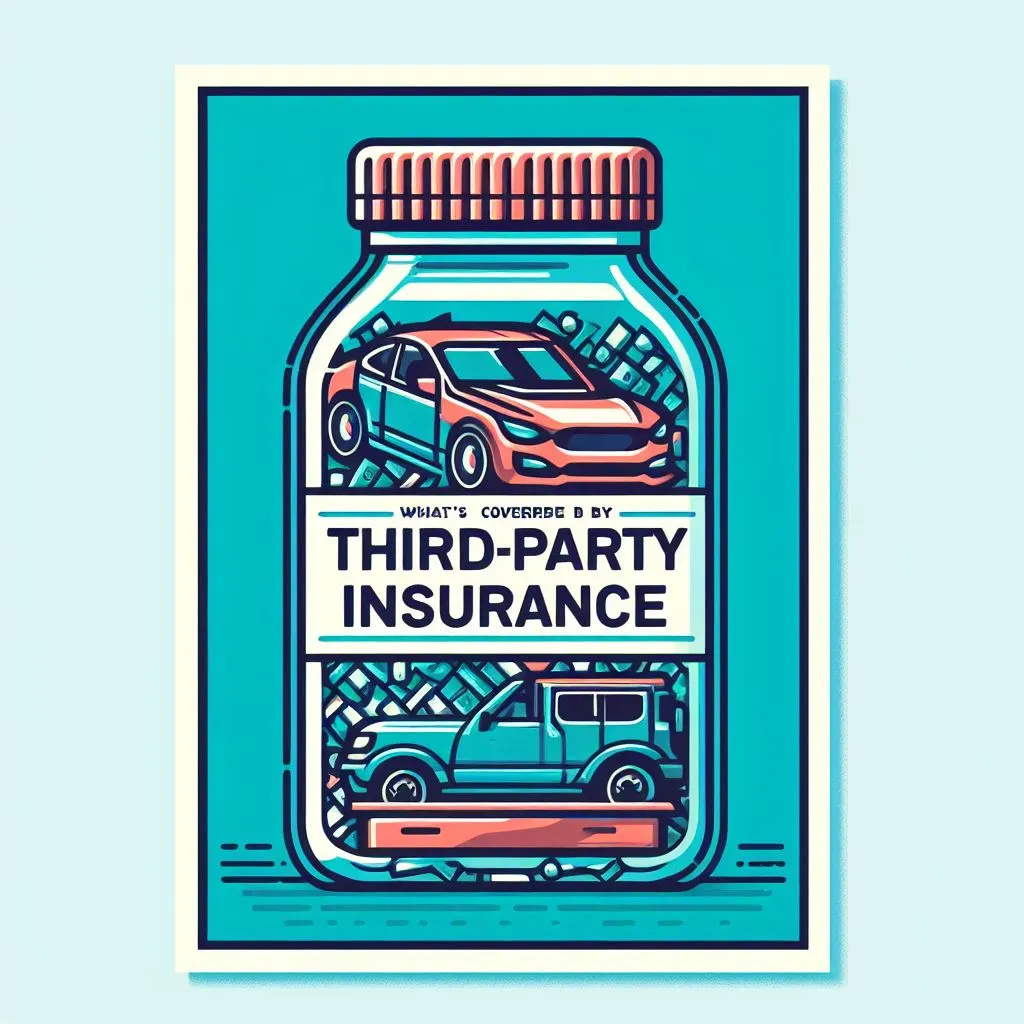Welcome to this blog post where you will learn What’s covered by third-party insurance, without more introductions let’s start!
Third-party insurance is a type of liability insurance that covers you when you are sued for damages caused to another person or their property.
It is the most basic type of auto insurance required by law in most states.
So what’s covered by third-party insurance? Often mandatory in many countries, primarily covers liabilities arising from damages caused by the insured to a third party. Here’s a breakdown of what’s typically covered by third-party insurance:
- Bodily Injury or Death:
- If the insured or the insured vehicle is at fault for causing bodily injury or death to a third party, the insurance will cover the compensation claims made by the third party or their family.
- Property Damage:
- Third-party insurance provides coverage for damages caused to third-party property, up to a certain limit specified in the policy.
- Legal Costs:
- Legal costs and expenses which are incurred with the consent of the insurer, for defending a claim, might also be covered under third-party insurance.
- Other Additional Covers:
- Some insurance providers may offer additional covers like a personal accident cover for the driver/owner of the insured vehicle.

Note that third-party insurance doesn’t cover damages to the insured or the insured’s property; for that, one would need a comprehensive insurance policy.
The specifics of coverage can vary from one jurisdiction to another and from one insurance provider to another, so it’s advisable to read the policy document carefully or consult with an insurance professional to understand the exact scope of coverage provided by a third-party insurance policy.
What Does Third-Party Insurance Cover?
Third-party insurance typically covers the following:
- Bodily injury liability: This covers the medical expenses and lost wages of people who are injured in an accident that you cause.
- Property damage liability: This covers the cost of repairing or replacing property that is damaged in an accident that you cause.
Some states also require third-party insurance to cover personal injury protection (PIP) and uninsured and underinsured motorist coverage (UM/UIM).
- Personal injury protection (PIP): This covers your medical expenses and lost wages if you are injured in an auto accident, regardless of who is at fault.
- Uninsured and underinsured motorist coverage (UM/UIM): This covers you if you are hit by a driver who does not have insurance or does not have enough insurance to cover your damages.
What Does it Not Cover?
Third-party insurance does not cover the following:
- Damage to your own vehicle: If your vehicle is damaged in an accident, third-party insurance will not pay to repair or replace it.
- Medical expenses for you or your passengers: If you or your passengers are injured in an accident, third-party insurance will not pay for your medical expenses.
- Non-economic damages: Non-economic damages, such as pain and suffering, are not typically covered by third-party insurance.
When Do You Need Third-Party Insurance?
You need third-party insurance if you drive a car in most states. It is the minimum amount of auto insurance required by law.
How to Get Third-Party Insurance
You can get third-party insurance from an auto insurance company. When you shop for auto insurance, be sure to compare quotes from multiple companies to get the best rate.
How Much Does it Cost?
The cost of third-party insurance varies depending on a number of factors, such as your age, driving record, and the type of car you drive.
However, it is typically the most affordable type of auto insurance.
FAQs
What is the difference between third-party insurance and comprehensive insurance?
Third-party insurance only covers damages that you cause to other people or their property. Comprehensive insurance covers damages to your own vehicle, regardless of who is at fault. Comprehensive insurance also covers other losses, such as theft and vandalism.
What is the minimum amount of third-party insurance required by law?
The minimum amount of third-party insurance required by law varies from state to state.
However, most states require drivers to have at least $25,000 in bodily injury liability coverage and $50,000 in property damage liability coverage.
Do I need third-party insurance if I drive someone else’s car?
Yes, you need third-party insurance if you drive someone else’s car, even if the car owner has their own insurance policy.
This is because the car owner’s insurance policy may not cover you.
For example, if you are not a named driver on the policy, or if you are driving the car without the owner’s permission, you may not be covered.
There are a few exceptions to this rule.
For example, in some states, if you are a member of the car owner’s household and you have your own car insurance policy, you may be covered by the car owner’s policy when you drive their car. However, it is always best to check with your insurance agent to make sure that you are covered before driving someone else’s car.
If you are involved in an accident while driving someone else’s car without third-party insurance, you could be personally liable for any damages that you cause. This means that you could be sued and could be forced to pay out of pocket for the other party’s medical expenses, lost wages, and property damage.
To avoid this risk, it is important to have third-party insurance when you drive someone else’s car. You can purchase a temporary third-party insurance policy from an insurance company, or you can ask the car owner to add you as a named driver to their policy.
What happens if I’m involved in an accident and I don’t have third-party insurance?
If you are involved in an accident and you do not have third-party insurance, you are personally liable for any damages that you cause to the other party. This means that you could be sued and could be forced to pay out of pocket for the other party’s medical expenses, lost wages, and property damage.
How can I file a third-party insurance claim?
If you are involved in an accident and you believe that the other driver is at fault, you can file a third-party insurance claim with their insurance company. To do this, you will need to gather evidence of the accident, such as police reports, photos, and witness statements. You will also need to submit a claim form to the insurance company.
Benefits of Having Third-Party Insurance
There are a number of benefits to having third-party insurance, including:
- Financial protection: If you are involved in an accident and you cause damage to another person or their property, third-party insurance can help to protect you from financial liability.
- Peace of mind: Knowing that you have third-party insurance can give you peace of mind knowing that you are financially protected if you are involved in an accident.
- Compliance with the law: In most states, it is required by law to have third-party insurance. If you are caught driving without third-party insurance, you could be fined or even have your license suspended.
Conclusion
Third-party insurance is an important type of insurance for any driver.
It can help to protect you from financial liability if you are involved in an accident and cause damage to another person or their property.
It is also a requirement in most states, so it is important to make sure that you know what’s covered by third-party insurance before you hit the road.

Additional Tips for Filing a Third-Party Insurance Claim
- Be as cooperative as possible with the insurance company.
- Be clear and concise in your statements.
- Provide all of the requested documentation.
- Follow up with the insurance company regularly to check on the status of your claim.
In conclusion, third-party insurance acts as a shield, protecting the insured from the financial repercussions of causing harm or damage to others or their property.
It covers compensation claims for bodily injuries, death, and property damage inflicted upon a third party by the insured. Additionally, it may cover legal costs associated with defending against a claim.
However, it’s imperative to note that third-party insurance does not cover damages to the insured or their own property—such coverage requires a comprehensive insurance policy.
The extent of coverage and additional benefits may vary across different insurance providers and jurisdictions, hence, a thorough examination of the policy document or a consultation with an insurance professional is advisable to understand the precise coverage offered.
If you have any questions about third-party insurance or filing a claim, you should contact your insurance agent or an attorney.



